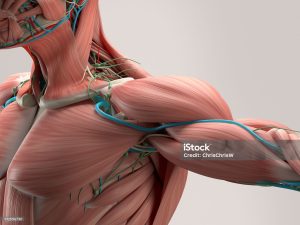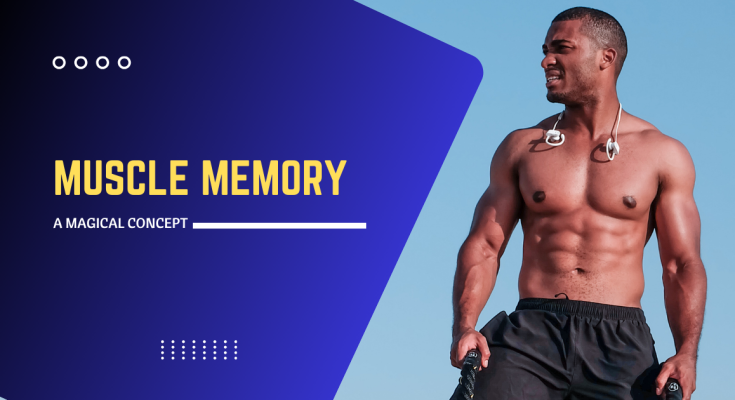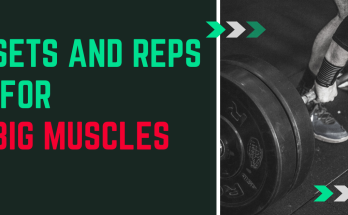Muscle memory : a magical concept

Introduction
Today, I want to discuss a crucial topic that can help you regain muscle if you’ve lost it after taking a long break from the gym. If you’ve built a significant amount of muscle but had to step away from training for a few months, perhaps due to injury or other reasons, you might notice a decrease in both muscle mass and strength. Naturally, when you return to the gym, you’ll wonder: How quickly can I regain the muscle I’ve lost? Will it take the same amount of time to rebuild as it did when I first started working out?
This is a common concern, and understandably so, because staying consistent in the gym is challenging. Life happens—injuries, busy schedules, or other circumstances might force you to take a break. When that happens, it’s natural to worry about how your body will respond when you start training again. Many people fear that they’ll have to spend the same amount of time and effort regaining their lost muscle as they did building it initially, and that can be intimidating. However, there’s good news on this front, and it’s something that can alleviate those concerns.

Fear of losing muscles
Many people fear that taking a break from the gym, even for a few weeks or months, will lead to a complete loss of their hard-earned muscles. This fear can become so overwhelming that even when someone is injured, dealing with family issues, or facing other significant challenges, they might still push themselves to keep going to the gym out of concern for losing their gains. However, this approach can be problematic and even dangerous, as working out while injured or stressed can increase the risk of further injury or other health complications.
It’s crucial to understand the concept of muscle memory and how muscle regrowth works, as this knowledge can alleviate much of the anxiety surrounding taking time off. Muscle memory is a remarkable phenomenon where the muscles you’ve built up previously can be regained more quickly after a break, compared to the time it took to build them in the first place. This is because when you build muscle, your muscle cells increase in number and size, and even if the size decreases during a break, the number of cells remains the same. When you return to training, these cells “remember” their previous state and grow back faster.
This is great news for anyone who has built a significant amount of muscle and needs to take a break. Understanding that your body has a natural mechanism to help you regain lost muscle mass quickly can reduce the pressure to maintain a constant gym routine, especially when life throws challenges your way. Instead of risking further injury or burnout, you can take the time you need to recover, knowing that when you’re ready to return, your muscles will respond positively and recover faster than you might expect.

Gift of weight training
A person who is into running builds stamina over time, but if they stop running and return to it after a year, they typically have to rebuild their stamina from scratch. However, this isn’t the case with bodybuilding, thanks to a fascinating mechanism involving structures within your muscles known as myonuclei. These myonuclei play a crucial role in muscle memory and help you regain muscle mass much faster than when you first started working out.
When you engage in bodybuilding and build a significant amount of muscle, myonuclei are formed within your muscle fibers. These myonuclei act like the “brains” of your muscles, essentially remembering the muscle mass and strength you had before. Unlike stamina, which can fade entirely, these myonuclei remain in your muscles even if you stop working out for a prolonged period. Whether you take a break for a year, two years, or even ten years, these myonuclei don’t disappear—they remain ready to help you rebuild your lost muscle much more quickly than the first time you started training.
This muscle memory effect is what makes regaining lost muscle significantly easier. The initial phase of building muscle is challenging because your body is creating these myonuclei and adapting to the stress of weight training. Once these myonuclei are established, they stay with you permanently, allowing your muscles to “remember” their previous size and strength. When you return to the gym after a break, your muscles can rapidly rebuild because the myonuclei are still there, guiding the process.
This understanding of myonuclei and muscle memory can be incredibly reassuring for anyone who needs to take time off from the gym. It means that your hard work isn’t lost forever, and your body has a built-in mechanism to help you quickly regain your gains when you’re ready to return to training.

Hodge Twins
A great example of muscle memory in action is the story of the Hodge Twins, two popular YouTubers who demonstrate the power of this concept beautifully. The Hodge Twins began their fitness journey when they were 22 years old, and after dedicating two years to intense training, they built a significant amount of muscle mass. However, they took a break from the gym and didn’t return to working out until they were around 35 or 37 years old—roughly 12 to 13 years later.
Despite this long hiatus, the Hodge Twins were able to regain all the muscle they had previously built in just a few months once they resumed their training. This remarkable turnaround showcases the effectiveness of muscle memory. The myonuclei formed during their initial training remained in their muscles, allowing them to quickly rebuild their muscle mass after their break.
This example underscores a crucial point: if you’ve built substantial muscle and need to take time off, there’s no need to worry about losing all your gains forever. Muscle memory means you won’t face the same challenges as when you first started. Instead, after taking the necessary time to rest and recover, you’ll find that your muscles will respond quickly when you return to the gym. Recovery and rest are essential components of muscle growth, so taking time off can actually benefit you in the long run. So, don’t be discouraged by the prospect of taking a break—your muscles will remember and adapt, allowing you to regain your strength and size more efficiently.

Retaining muscles as a natural
Gaining or retaining muscle mass is relatively straightforward for natural lifters, but it’s a different story for those using steroids or anabolic substances. For individuals who rely on these substances, their gains are not solely the result of their own efforts but are significantly influenced by the anabolics they use. Once they stop their cycles, they typically lose the muscle mass achieved through those drugs, as the gains are not permanent. The myonuclei mechanism that benefits natural lifters doesn’t work the same way for those on steroids, so their ability to maintain muscle mass after going off-cycle is limited.
Most people who go to the gym are natural lifters aiming to build a good physique rather than pursuing professional bodybuilding. For the vast majority—95%-98%—who train naturally, the concept of myonuclei is particularly beneficial. After building significant muscle mass, retaining it is much easier than one might expect. Even if you reduce the intensity of your workouts, you’ll find that you can maintain most of your muscle mass with less effort than when you first started.
Staying natural has its advantages beyond just muscle retention. Natural training supports long-term health and fitness, and it helps to maintain muscle tissue as you age. Having a solid muscle foundation is beneficial as you grow older; it helps prevent your skin from sagging and slows the aging process. Comparing people who work out regularly with those who don’t, especially over 40, highlights this difference. Those who continue to train and maintain muscle mass often look younger and healthier compared to their sedentary counterparts.
In summary, maintaining muscle mass and health through natural training is not only more sustainable but also beneficial for long-term well-being and aging. Combining natural strength training with the advantages of muscle memory will help you retain your gains more effectively and enjoy the many benefits of staying fit and active throughout your life.



